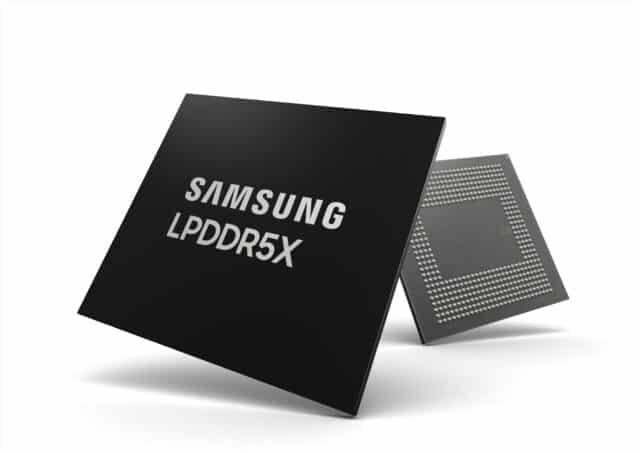Samsung and MediaTek validate industry's fastest LPDDR5X DRAM for AI smartphones

Samsung today announced its successful collaboration with MediaTek, resulting in the verification of the industry's fastest Low Power Double Data Rate 5X (LPDDR5X) DRAM, clocking in at 10.7 gigabits-per-second (Gbps). This technology is set to feature on MediaTek’s upcoming flagship Dimensity 9400 System on Chip (SoC), which is scheduled for release later this year.
The 10.7Gbps operation speed verification was conducted on Samsung's 16GB LPDDR5X package, achieving this milestone within just three months of collaboration. This achievement is quite notable, as the new LPDDR5X DRAM offers over 25 percent improvement in power consumption and performance compared to previous generations. This advancement promises extended battery life and superior AI capabilities directly on mobile devices, enabling faster, server-independent AI applications like voice-to-text generation.
YongCheol Bae, Executive Vice President of Memory Product Planning at Samsung Electronics, emphasized the strategic significance of this collaboration. "Through our strategic cooperation with MediaTek, Samsung has verified the industry's fastest LPDDR5X DRAM that is poised to lead the AI smartphone market,” said Bae.
JC Hsu, Corporate Senior Vice President at MediaTek, also commented on the breakthrough, noting its potential to revolutionize AI functionality in mobile devices. “Working together with Samsung Electronics has enabled MediaTek’s next-generation Dimensity chipset to become the world’s first to be validated at LPDDR5X operating speeds up to 10.7Gbps, allowing upcoming devices to deliver unparalleled AI functionality and mobile performance,” Hsu stated.
The partnership between Samsung and MediaTek not only sets a new benchmark in DRAM technology but also plays a crucial role in the expansion of the on-device AI market, particularly for AI smartphones. With energy efficiency and high performance becoming increasingly crucial, Samsung's latest LPDDR DRAM solutions are expected to find broader applications, extending from mobile devices to servers, PCs, and even automotive technologies.
